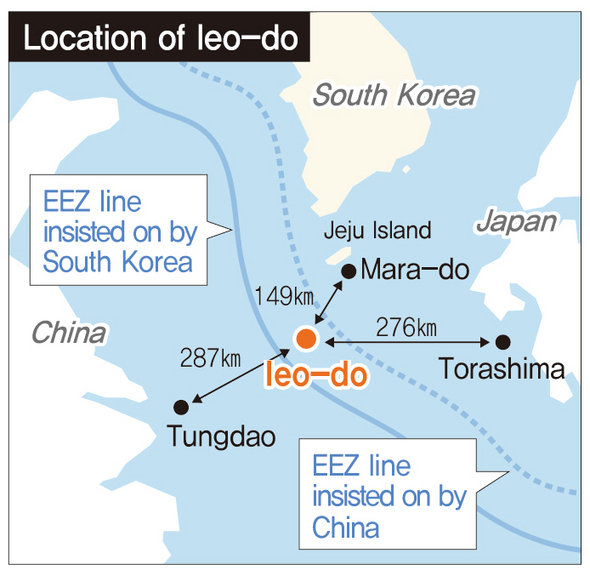
By CHOE SANG-HUN
South Korea’s foreign minister warned on Wednesday that China’s recent attempt to police the sky over a vast area in the East China Sea was worsening tensions in a region already strained by territorial disputes.
China’s so-called air defense identification zone covered not only a group of Japanese islands but also a submerged rock that both China and South Korea want to control.
The dispute over the submerged rock has never been as fierce as China’s dispute over the islands with Japan, but the new air patrol zone drew strong protests from South Korea, threatening to heighten tensions with Beijing.
Seoul said it would not recognize the Chinese zone and would maintain its jurisdictional right to waters around the Ieodo rock.
“The issue of the air defense identification zone is making the already difficult regional situations even more difficult to deal with,” Foreign Minister Yun Byung-se of South Korea said during a defense forum in Seoul on Wednesday.
“We see competition and conflict in the region deepening,” he said.
“Things can take a dramatic turn for the worse if territorial conflicts and historical issues are merged with nationalism.”
Mr. Yun’s comment came a day after two long-range American B-52 bombers flew through the contested airspace, a move seen as a warning by Washington that it would defy what it considered China’s provocative attempt to expand control over airspace in the region.
In recent years, tensions over territorial disputes have grown in the region, a reflection of how contesting claims were never settled satisfactorily at the end of World War II in 1945.
Recently, such conflicts tended to keep South Korea drifting further away from Japan as Seoul appeared to be cozying up more to Beijing.
Seoul and Tokyo, two close American allies, have locked horns over a separate set of islands and over Japan’s treatment of Korean sex slaves for its army during World War II.
South Korea and China recently together angered Tokyo by agreeing to build a monument in China for a Korean nationalist hero who assassinated a former Japanese prime minister in 1909.
But China’s declaration of the expanded air control zone highlighted a potentially volatile dispute between China and South Korea, since it covered Ieodo, a submerged reef south of Jeju, an island off the south coast of South Korea.
Ieodo, which South Korea says it effectively controls, is believed to be surrounded by natural gas and minerals deposits.
Despite fierce protests from environmentalists, South Korea is building a $970 million naval base in Jeju, a home for 20 warships, including submarines, that the navy says will protect shipping lanes in the East China Sea for South Korea’s oil-dependent, export-driven economy as well as enabling it to respond quickly to any dispute with China over the rock.
Under international maritime law, countries cannot claim a submerged rock as territory but can claim the right to control and use waters and natural resources around it.
Both China and South Korea claim such rights over the reef.
Currently, the Korea Hydrographic and Oceanographic Administration manages a research station built on the rock.
“The issue over Ieodo is not a territorial one but a matter of the exclusive economic zone, as it is not an island but a submerged rock,” Cho Tai-young, a spokesman for the South Korean Foreign Ministry, said on Wednesday.







0 comments:
Post a Comment